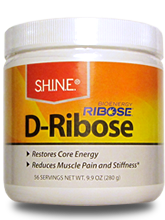Sugar Addiction and Fibromyalgia
Are you a sugar addict? As with most addictions, by the time people ask this question, the answer is usually yes. A simple way to tell? Stay off sugar for two to four weeks and see how you feel.
With 18% of the average American diet coming from added sugar, sugar addiction in the U.S. is becoming the rule rather than the exception. Many people actually eat their weight in sugar every year! And if you're tired, achy, brain fogged, anxious, and unable to lose weight, sugar addiction may be the reason why.
Metabolic syndrome with high cholesterol and obesity, hypertension, and heart disease are just some of the chronic medical problems associated with excess sugar in your diet. This is the short list. The actual list could go on for pages. In fact, research from the American Heart Association suggests that sugar contributes to over 180,000 deaths each year.
Meanwhile, in a remarkable example of corporate cynicism, people who have sugar-induced irritability are being told to eat more sugar. Candy bar ads have even coined the term "hangry" (angry from hunger). Yet ironically eating a candy bar or drinking a sugar-packed soda is the worst thing you can do to address "hanger." That's because the candy bar only creates a temporary spike in your blood sugar level. It makes you feel better for awhile, but the drop in sugar level that follows the spike only makes the problem worse a half hour later, putting you on an emotional "sugar roller coaster."
But here's the key thing for you to know. There are four main types of sugar addiction, and when people progress to having three or all four of these, it usually progresses into fibromyalgia! Treating the four addiction types not only makes your sugar cravings go away, so you can safely enjoy sweets and chocolate in moderation, but also markedly decreases the fibromyalgia symptoms. Here's how you can "have your cake and eat it too."
Unfortunately, as most people find, trying to completely eliminate sugar from your diet usually doesn't work out very well. Besides, who wants to cut out things that give you pleasure in life? Put simply, if living to a ripe old age requires cutting out the pleasures of life, why bother?
The answer? As Mark Twain so beautifully put it, "All things in moderation, including moderation!" It's okay to enjoy sugar (chocolate is actually a health food!). The trick is to consume it in small amounts, and not yield to the your body's demands from craving sweets.
The Four Types of Sugar Addiction
Sugar cravings are driven by a number of factors, and I've found that there are four main types of sugar addiction. What's critical is to identify the source of your sugar cravings. When you do this, you can make your sugar cravings go away. And that will make you feel much better.
- Wanting sweets because you're fatigued. Sugar is an energy loan shark. It gives a quick energy fix, but then triggers adrenaline releases that burn energy while making you anxious. The free Energy Analysis Program can show you how to optimize your healthy energy. Daily supplementation with S.H.I.N.E.® D-ribose, and the Energy Revitalization System vitamin powder are good ways to begin, with marked improvement in fibromyalgia often being seen after 3 to 6 weeks (see The use of D-ribose in chronic fatigue syndrome and fibromyalgia: a pilot study).
- Severe irritability when hungry. This reflects inadequate adrenal function. The job of the adrenal hormone cortisol is to keep sugar from dropping too low during stress. When people develop adrenal fatigue (often simply caused by the stress of modern life), cortisol stress hormone response is inadequate and blood sugar level can plummet. Fortunately, this can be helped dramatically with nutritional support including vitamin B5, adrenal glandulars, vitamin C, and licorice. In my patients, I recommend the supplements Adrenaplex (by EuroPharma) or Adrenal Stress End (by Enzymatic Therapy), both of which contain all of these in a single capsule. This offers dramatic relief within a week.
- Nearly constant sugar cravings, but without the "hanger." A group that I call the "Happy Twinkie hunters" tends to be associated with Candida/yeast overgrowth in the gut. Other markers of this include nasal congestion and irritable bowel syndrome. These cravings and problems also go away when the Candida overgrowth is treated.
- Anxiety and depression associated with perimenopause. People learn to reach for sugar because it increases tryptophan moving into the brain, which raises serotonin levels. Serotonin has been called the "happiness molecule." Unfortunately, over time excess sugar causes this to get blunted (because of insulin resistance), so that the sugar actually causes excessive anxiety and depression. Using bioidentical hormone replacement can help this.
An observation I've made in my years treating fibromyalgia is that if you have more than two of these types of sugar addiction, then you likely have, or are on the verge of developing, fibromyalgia. Addressing these problems can result in marked improvement in fibromyalgia symptoms.
You can have your cake and eat it too!

Jacob Teitelbaum, M.D. is one of the most frequently quoted post viral CFS, fibromyalgia, energy, sleep and pain medical authorities in the world. He is the author of 12 books including You Can Heal from Long Covid, the best-selling From Fatigued to Fantastic!, Pain Free 1-2-3, The Complete Guide to Beating Sugar Addiction, Real Cause Real Cure, The Fatigue and Fibromyalgia Solution, and the popular free Smart Phone app Cures A-Z. He is the lead author of eight research studies and three medical textbook chapters on effective treatment for fibromyalgia and chronic fatigue syndrome. Dr. Teitelbaum appears often as a guest on news and talk shows nationwide, including past appearances on Good Morning America, The Dr. Oz Show, Oprah & Friends, CNN, and FoxNewsHealth.
Websites: Vitality101.com | EndFatigue.com
Facebook Support Group: Recovering from Fibromyalgia, Chronic Fatigue, and Long COVID
Facebook Page | Instagram



